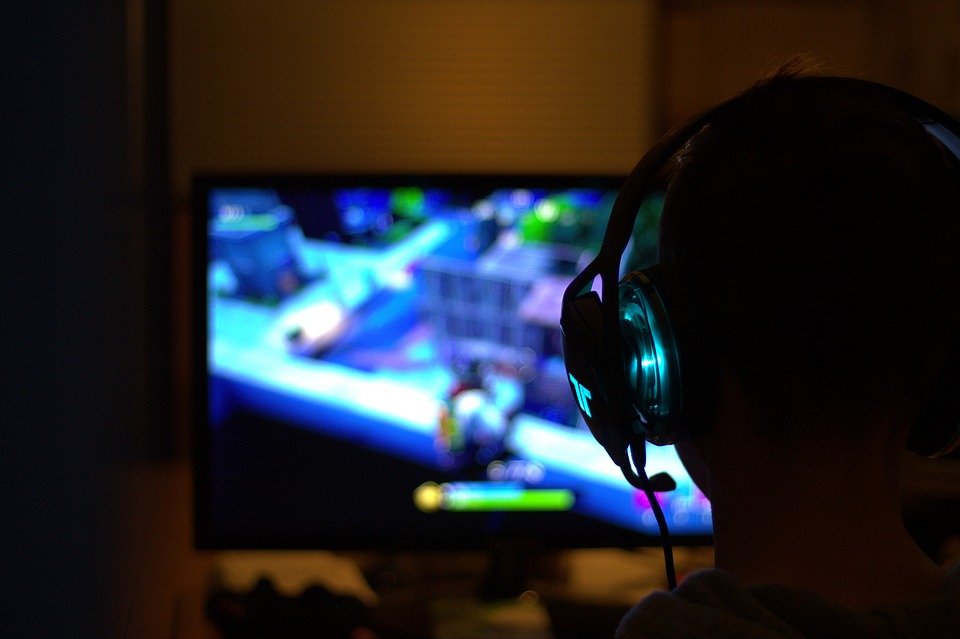Many media outlets, bloggers and politicians argue that people are at increased risk of violent crime if they spend a lot of time playing computer-based shooting games. We decided to check if this is true.
For example, they try to explain the deforming influence of computer games on the psyche execution Anders Breivik 77 people on the island of Utøya, and mass shooting in Kazan. Those who speak out this way explain this by normalizing the violence that occurs on the screen in games and transferring it to the out-of-game environment. In particular, with the initiative to tighten control over the video game industry spoke Senator Alexander Bashkin. He stated that “in these games there are scraps of meat flying, blood splashes flying, sheer violence - for the still unformed teenage psyche this can be extremely dangerous.”
Scientists have repeatedly wondered how computer shooting games affect the likelihood that a player will turn the game scenario into reality. One of the first research was carried out in 2000 by the American Psychological Association. Then the experts conducted two experiments at once. In the first, students with the most negative characteristics from the management of the educational institution were selected and their gaming habits were analyzed. In the second, the participants were divided into two groups: the first played an aggressive game, and the second played a calm game. After completing a certain number of levels, participants were asked to “punish” their opponents by playing loud, unpleasant sounds in their headphones. Subjects who played an aggressive game did so more willingly. However, this second study was more likely to demonstrate short-term results.
Their conclusions were corrected last year study specialists from the University of Melbourne. They showed that increased levels of aggression are not a consequence of the violence of games, but of their competitiveness, hence the conclusion that similar competitive activities (for example, sports betting) can provoke a similar increase in levels of aggression.

However, scientists agree that there is no “play and go shoot” pattern. In 2015, the American Psychological Association, after analyzing more than 100 studies, concluded that there was no evidence to support such a pattern. The head of that scientific group, Mark Appelbaum summed up: “Scientists have been studying aggressive games for more than 20 years, but we still don’t have enough data to link them to violent crime. They are one of the risk factors - and that’s all.” Scientists have emphasized that such games can become a trigger (in the presence of a dysfunctional family situation, violence against the aggressor in the past, and so on), but are not the root cause of such behavior.
An experiment from the Oxford Institute brought more understanding to the situation. Especially for him, the researchers created a “soft” version of the game Half Life, in which the enemy did not die when defeated, but literally dissolved into thin air, therefore, there was almost no blood and realistic death scenes on the screen. Also, some of the subjects were given a training video to watch, while the other part acted at random. Scientists came to an important conclusion: the level of aggression increased not from the amount of blood shed by the player, but from the inability to control the situation. Curator of the experiment, Dr. Andrew Przybylski explained it's like this: "When a player is confused by poor design or can't understand the controls, they get stuck on one task, can't progress further in the game, and so get angry." His colleague Richard Ryan coming in their conclusions further: “We believe that users are attracted to such games not by the desire to show their aggression, on the contrary, aggression arises because they fail to win.”
The most recent findings regarding the potential for aggression from violent computer games were published earlier this year. They summed up the results of a long ten-year experiment that began in 2007–2009. It involved children aged 10–13 years old, who were divided into three groups: those who played violent games a lot, those who played such games in moderation, and those who preferred non-violent computer games. Ten years later, scientists analyzed the selected children and came to the conclusion that the level of aggressiveness did not differ from group to group.
Moreover, a group of scientists led by Professor Michael Ward from the University of Texas came to the conclusion that violent video games can reduce the level of aggression, as they give a person the opportunity to realize negative scenarios in the game, and not in real life.
Thus, we can conclude that in the short term, computer games can indeed increase the level of aggression (especially among initially aggressive players). However, there is no scientific data showing a cause-and-effect relationship between a serious passion for computer shooting games, as well as other games with a violent plot, and an increase in aggression.

Mostly not true
Read on the topic:
If you find a spelling or grammatical error, please let us know by highlighting the error text and clicking Ctrl+Enter.






